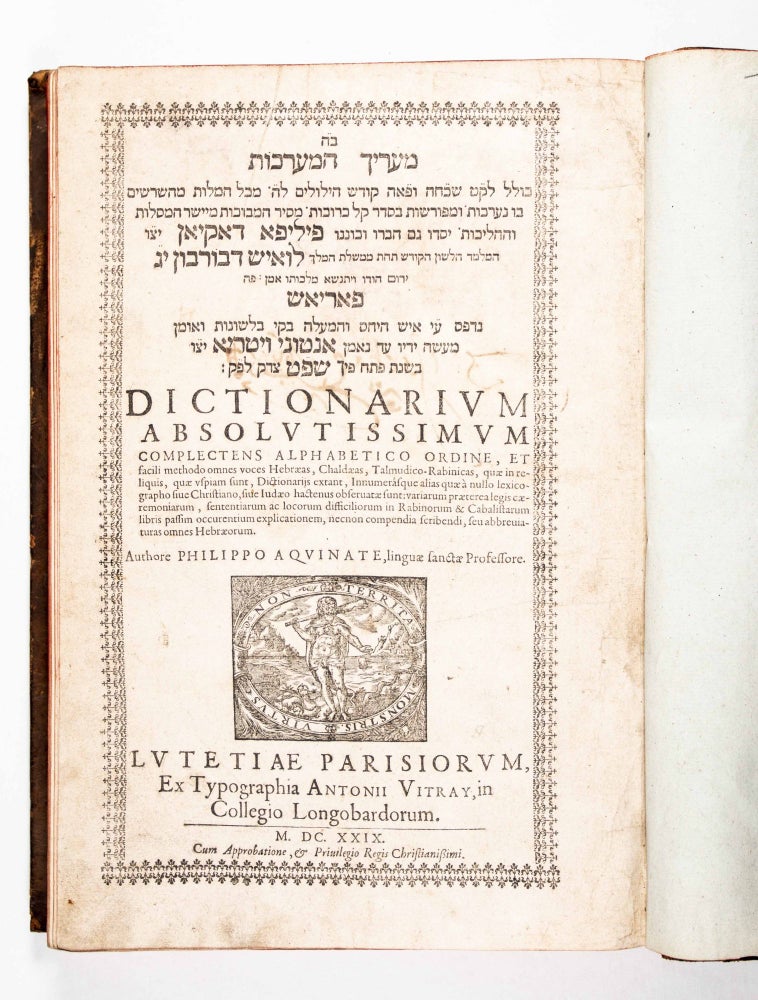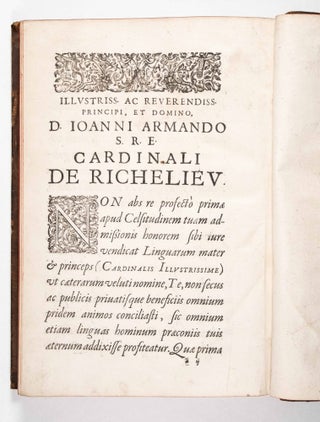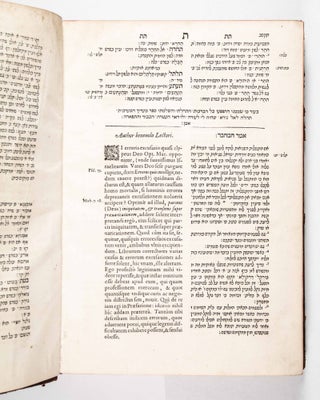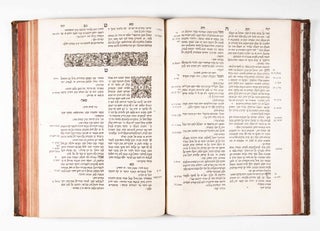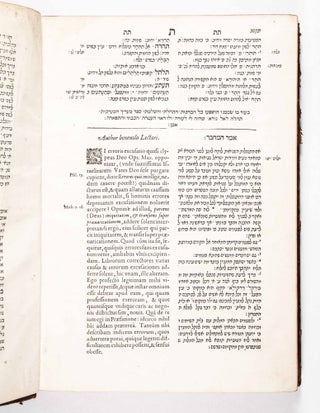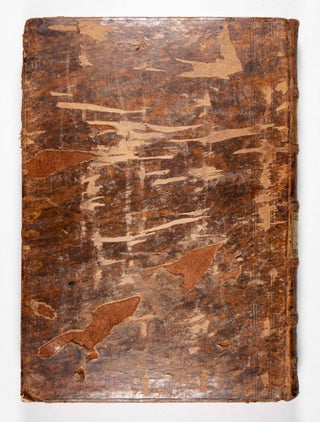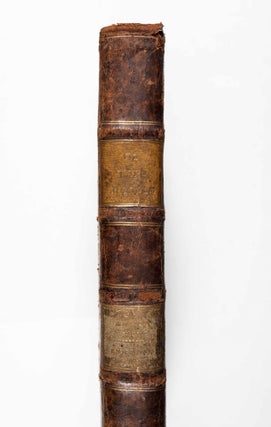Ma‘arikh ha-ma‘arakhot (Survey of the Orders): Dictionarium absolutissimum
Paris: Antoine Vitré, 1629. First edition. Hardcover. Folio. Signed: a4, e2, A-3B6, 3C4 (= 298 leaves). [12], 584pp. Paginated from right to left. Full title and imprint in both Hebrew and Latin, with woodcut printer's device; title within decorative letterpress border; woodcut lettrines and head-pieces; printed marginalia. Text in two columns. Eighteenth-century calf, scuffed, especially at front cover; spine with raised bands and gilt morocco morocco labels; edges stained red; green silk ribbon marker. Title leaf skilfully mounted on eighteenth-century paper. Text crisp and clean, with ample borders.
Only edition of this rare and highly unusual Hebrew and Aramaic dictionary, composed by the formerly Jewish convert to Catholicism, Mordechai Cresque of Carpentras, who derived his new name Philippus d’Aquin (or Aquinas; 1578-1650) from the place of his baptism in Aquino (Italy). Printed almost entirely in the fine bold rashi characters ("grosse glose hebraicque") cut by Guillaume I Le Bé in 1592, only the vocalised quotations and the lemmata are in Le Bé's square Hebrew script. Apart from the Latin title, dedication, approbations, a poetic encomium, and the alpha-numeric leaf signatures, the work is printed entirely in Hebrew characters. It ends with a short notice in Latin and Hebrew on the printing errors, which are corrected on the last three pages. The author announces at the title that all Hebrew (biblical and rabbinic-talmudic) and Aramaic terms are to be found in Ma'arikh ha-Ma'arakhot, including many that do not appear in any existing lexicons, among Jews or Christians. D'Aquin notes in particular that rare and difficult terms in rabbinic and cabalistic literature, along with obscure abbreviations are all clearly explained.
"The work is called in Hebrew Maarik ha-maarikot, i. e. “Survey of the orders”, a term which in the plural is also applied to "battle-lines" (Wolf 140 translates Disponens ordines sive acies). One cannot help wonder if there is not a connection with the political situation at the time, when the Huguenot town of La Rochelle had to submit to the French Crown in 1628. The privilege for our book has "Données au Camp devant la Rochelle le 19. Septembre 1628" and the work is dedicated to Cardinal Richelieu whose conquest of La Rochelle is also extolled in a Hebrew poem by the author... But the types are also reminiscent of war: did not Le Bé cut them "après le siège de Paris, pour passer l'ennui"? (see Carter & Vervliet p. 15). They were prominently displayed afterwards in Vitray's type-specimen of 1636" (Smitskamp). Among the eleven scholars whose approbations grace the present volume are Gabriel Sionita (1577-1645; professor of Arabic and Syriac at the College de France); Gilbert Gaulmin (1585-1665; Orientalist); Denis Petau (1583-1652; Jesuit theologian); and Jean Morin (1591-1659; theologian and Orientalist). Morin offers quite extravagent praise: "nihil hactenus in eo studii genere comparandum vidit Europa."
Provenance: A morocco label on the spine reads Me-izabin. Hirsch. Wolf Kola, i. e. From the legacy of Hirsch. Good+. Item #48838
References: Baillet, Jugement de Scavans 3 (1685): 729. Fürst 1:47-48. Gesenius, Geschichte, 113: “umfasst auch das Chadaïsche und Rabbinische” (Hebrew title incorrectly transcribed without the definite article and indication of plural). Smitskamp, Cat. no. 611 (but, notably, not in Philologia Orientalis). Steinschneider (Handbuch) 129: “Früher sehr gesucht und selten. Heidenheim wollte se zuerst wieder ediren, s. Catal. p. 739.” Wolf, Historia lexicorum, 140. For the interest of Richelieu in typographical matters, and his foundation of the Imprimerie Royale in 1640, see Updike 1:238-40. Not in Goldsmith
Hebrew title: מעריך המערכות.
Price: $3,500.00

